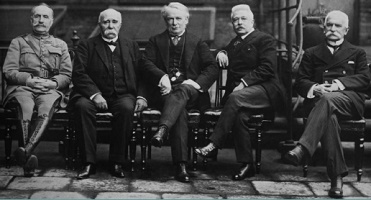What is a haiku?
We explain what a haiku is, how it is composed and the topics that it usually covers. In addition, famous poets of haikús and examples.
What is a haiku?
A type of poetry originating in Japan is known as haiku or haiku (in some cases jaiku ), which consists of a short text , consisting of three verses of five, seven and five syllables respectively, although the metric is not always so fixed . Its original essence involved the union of two ideas or poetic images and their “cut” or separation by a final. The haiku have no rhyme of any kind.
The haiku usually involves a sense of wonder and fascination of the poet about the contemplation of nature, especially if it has to do with time and the passing of the seasons. It is also common to refer to people’s daily lives.
His style is usually simple, natural, subtle and austere, offering the poet’s look from the details and the sensitive, as far as possible from the abstract concepts. It is hoped that the ego of the poet or hajin will step aside and give way to pure contemplation, the so-called aware .
Formerly the poets accompanied their haikús with an illustration, not very finished, that was called haiga . This tradition was inaugurated by the most famous and renowned cultivator of this type of poetry , which was Matsuo Bashö (1644-1694), the most famous poet of the Japanese Edo period.
Other cultures of haiku were Ihara Saikaku (1642-1693), Ueshima Onitsura (1661-1738), Yosa Buson (1716-1784), Kobayashi Issa (1763-1827), Masaoka Shiki (1867-1902), among others. Many Western authors have been fascinated by this type of poetry and have cultivated it in their respective languages.
-
Examples
Some known haikus are the following:
- From Matsuo Bashö:
This path
nobody travels and
twilight except.
- From Yosa Buson:
Slow days
are stacked, evoking
an old yesteryear.
- From Kobayashi Issa:
If you weren’t, the forest would be
too huge
.
- From Masaoka Shiki:
I cut a branch
and cleared better
through the window.
- From Jorge Luis Borges:
Is an empire
that light that goes out
or a firefly?
- From Octavio Paz:
Made of air
between pines and rocks
springs the poem.
- From Mario Benedetti:
Tremble dew
and purple leaves
and a hummingbird.
-
Love haikus
Although haikus tend to be about the contemplation of nature, it is possible to find some that have love as a theme, for example:
- From Yosa Buson:
Deep melancholy
My late wife’s comb
has stepped on the bedroom.
- From Kobayashi Issa:
Come with me,
play together,
sparrow without parents.
- From Masaoka Shiki:
The cherry blossoms;
No wife, sad
at the inn.
- From Natsume Sooseki:
Moon to the east.
Sleeping you will be
will at this time.
- From Nagai Kafuu:
Lily aroma.
Door where I wait for someone;
evening moonlit night.





